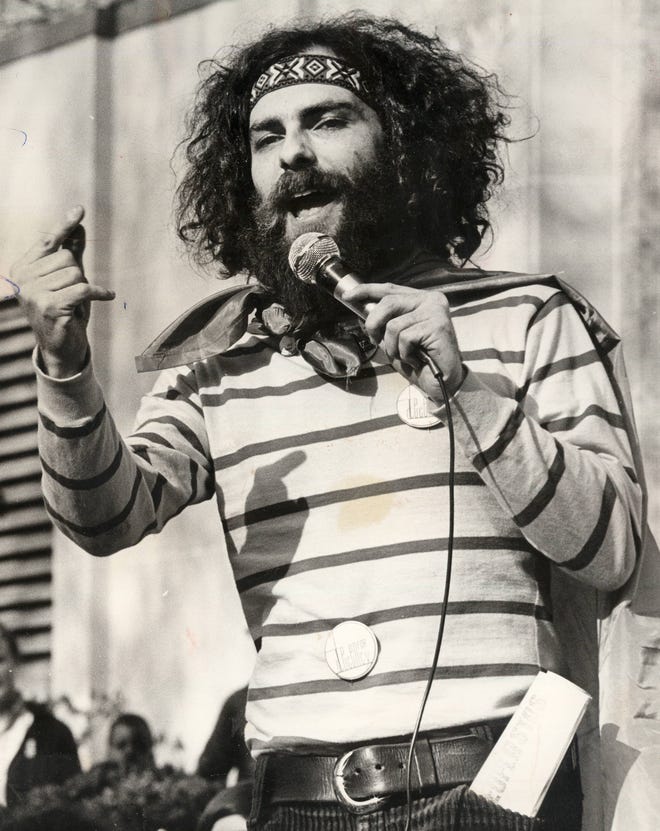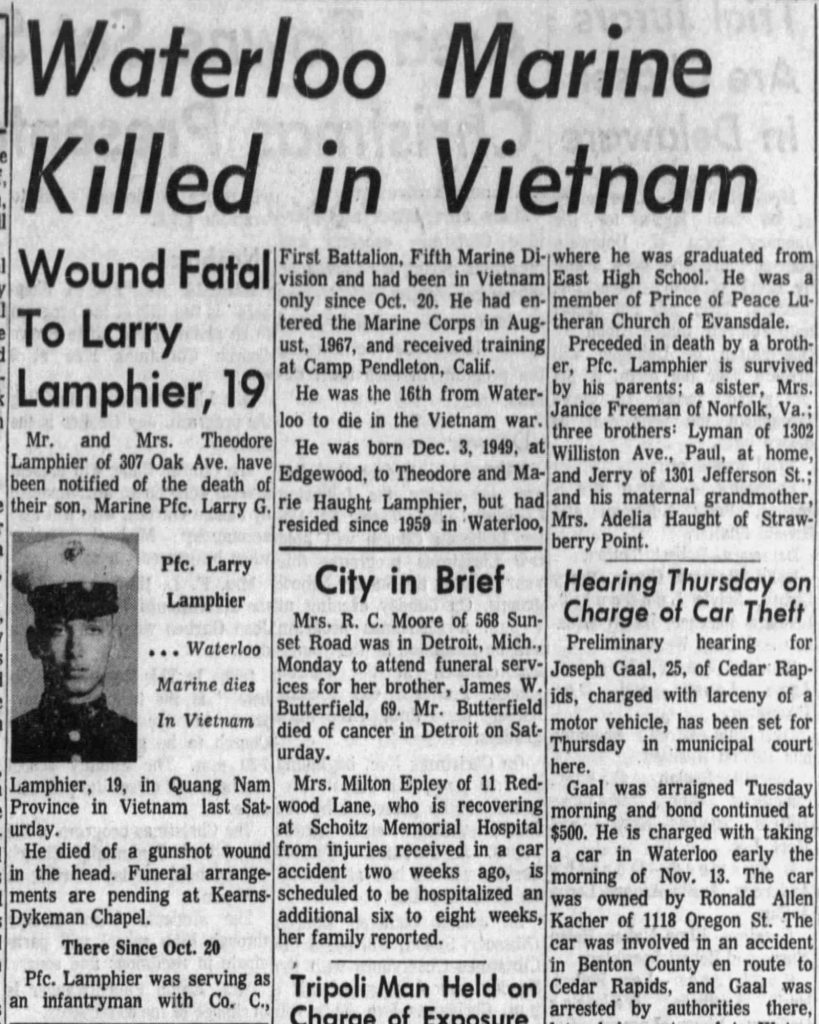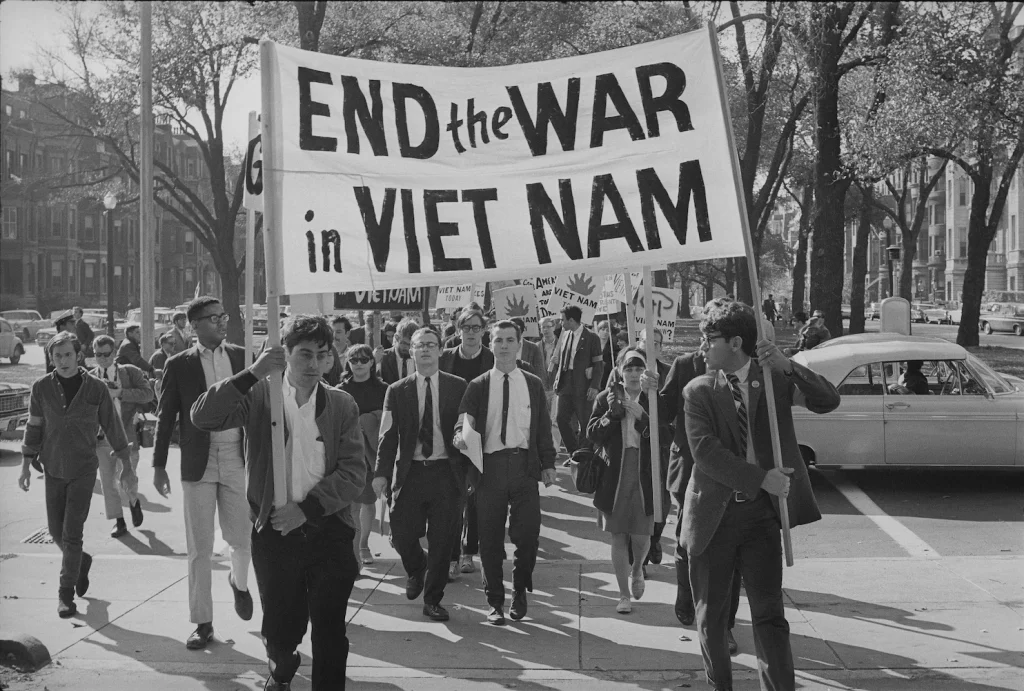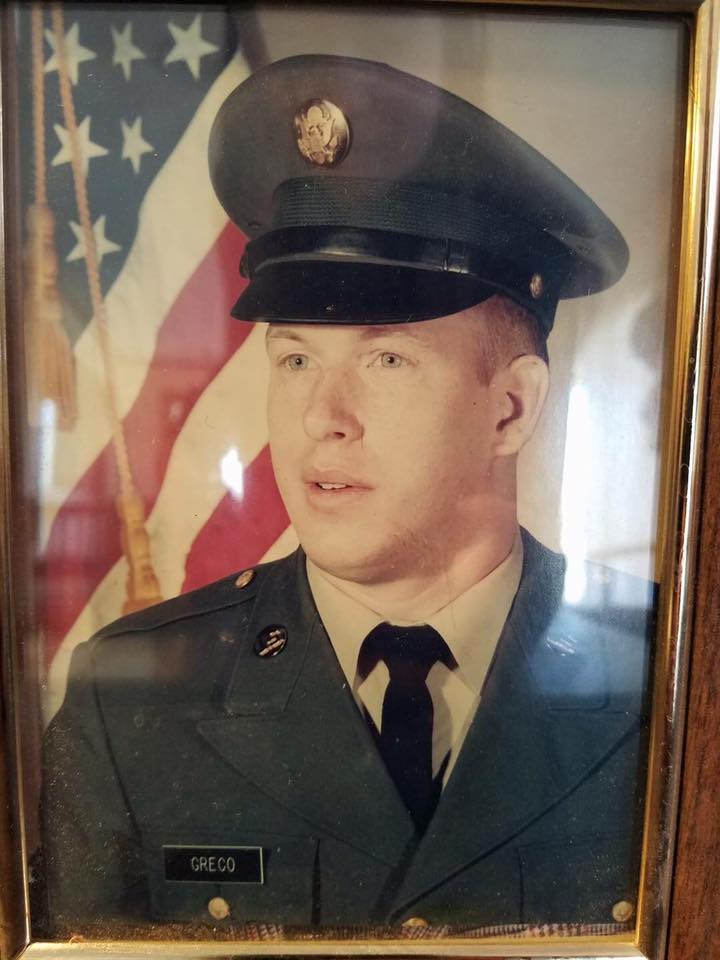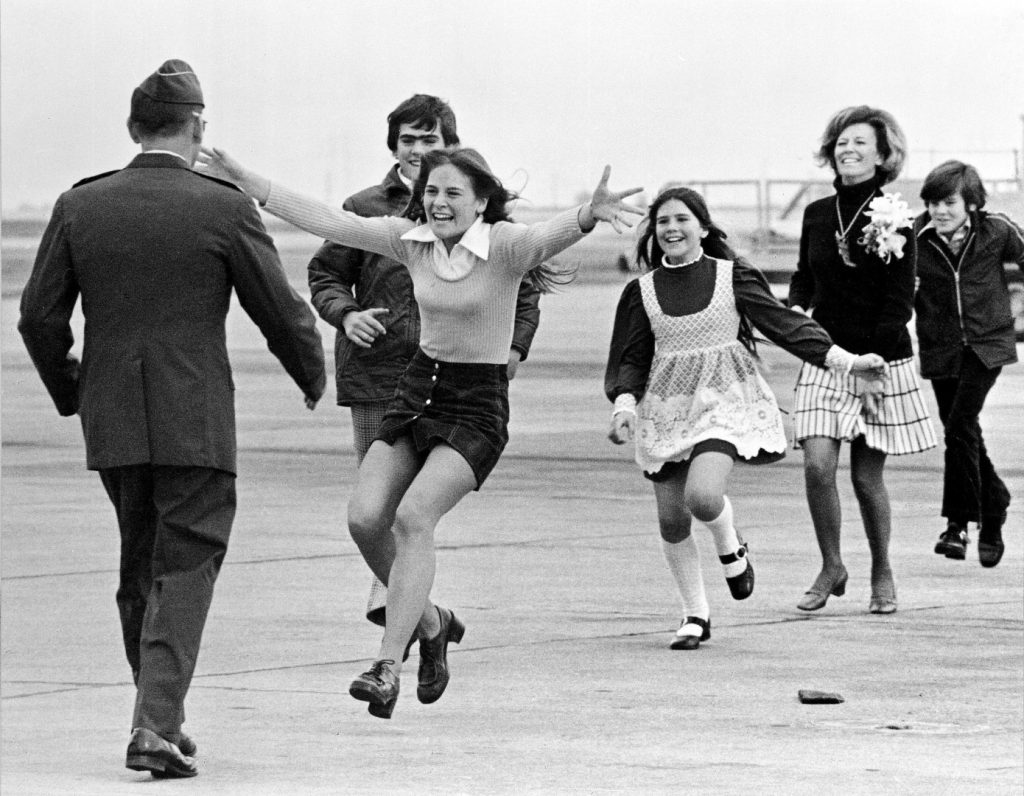
Mentioned in Pat Kinney interview
https://www.newspapers.com/clip/23511406/the-courier/
A conflict that forever changed a generation.
https://www.washingtonpost.com/lifestyle/style/the-civil-rights-and-vietnam-protests-changed-america-today-they-might-be-illegal/2017/09/22/ae57f778-9ed9-11e7-8ea1-ed975285475e_story.html
By: Gabrielle Greco
Introduction
The 1960s in the United States was a time of great change and civil unrest. The soocial and political norms of the Greatest Generation were turned upside down as the Baby Boomers embraced rock n’ roll and sexual freedom while protesting for Civil Rights and an end to the Vietnam War. The effects of the Vietnam War extended far beyond the Mekong Delta and the Ho Chi Minh Trail. This oral history project focuses on experiences of four members of Cedar Valley who had close relatives or friends serve in the war, or were drafted themselves. Each person interviewed has a different experience to show how the conflict in Vietnam effected the community of Waterloo and Cedar Falls, Iowa.
Greg Greco
Greg Greco is a Waterloo, Iowa native, and owner of Greco & Associates, Financial Services, LLC. He grew up near Blessed Sacrament Catholic Church. Greg was a born in 1960, making him a young child when the United States entered Vietnam. Along with six sisters, Greg had one older brother ten years older, Nick Greco. Nick enlisted in the United States Army in 1971.
Below are segments of the oral history interview with Greg Greco as he recollects watching his brother, Nick, leave for the war, watching him struggle with health complications afterwards, and his overall feelings regarding American military involvement in the conflict.
Following the surgery on Nick’s brain tumor, Greg tells of how Nick learned his health struggles stemmed from his exposure to Agent Orange while serving in Vietnam:
“Nick got with the VA in Iowa City, and they called him in. They had a map, and it said that most of the places he’d been, and where they used Agent Orange. He talked about it. They would go in and spray that shit then those guys would go in….they had B52s and they’d go in, and all the vegetation, like a day after they sprayed it, was just all wilted…the palm trees were just like rubber.”
“They had been through something together, you just knew it.”
Pat Kinney
Pat Kinney grew up in Waterloo, Iowa. Kinney is a long-time journalist for The Courier, the local Waterloo and Cedar Falls newspaper. Pat’s two older brothers had entered the service straight out of high school for employment and experience outside of Waterloo, Iowa. While neither of them were present in Vietnam, they had friends and classmates who passed away in the war.
Below are segments from the oral history interview with Pat Kinney, who explains how the Vietnam War brought about his coming of age and understanding of death, the experiences his brother’s shared, and the implications of media coverage of the war.
“When they say Walter Cronkite was the most trusted man in America, he really was…”
Gary Schieders
Gary Schnieders is a history teacher at Columbus High School in Waterloo, Iowa. He was drafted after his 18th birthday in October of 1964 but was rejected at his pre-induction physical exam due to a medical exemption. In 1965, as the Johnson beings ramp up military engagement in Vietman, he was summoned to appear again.
Mr. Schnieders’ comments on the similarities between the military pullout of Vietnam and the recent pullout of American troops in Afghanistan.
“We fell asleep in history class again. It was a repeat performance.”
David Will
David will is a mathematics teacher at Columbus High School in Waterloo, Iowa. He decided to go to college and become a teacher to avoid being drafted into military service for Vietnam. Ultimately he would be drafted in 1968 and stationed in Korea.
Mr. Will’s entire interview is below.
“They kept us overnight, which was a rather chaotic experience because we knew we were all goners.”
Conclusion:
The Vietnam War was the first war that came to the American public through the nightly news. Within Chester J Pack’s article, “And That’s the Way It Was: The Vietnam War on the Network Nightly News,” the author states: “television also showed the war as it was – a confused, fragmented, and questionable endeavor…television nightly news exposed the irrationalities of a war that lacked coherent strategy or clear purpose.” Each person interviewed in this oral history project mentioned the news footage as their first exposure to Vietnam, and placed trust in the media coverage that they were getting the true story of what was really going on.
Almost 50 years has passed since United States military forces withdrew from Vietnam. Public consensus of the war is drastically different today compared to America’s first entrance into the conflict. Sentiments in this interview showed contempt, disgust, at times hatred for ever entering into Vietnam in the first place. Time allows memories to contextualize significant and traumatic experiences.
Bibliography
Bodnar, John E. Bonds of Affection: Americans Define Their Patriotism. Princeton: Princeton University Press, 1996.
Boyle, Brenda M. “Rescuing Masculinity: Captivity, Rescue and Gender in American War Narratives.” The Journal of American Culture, Vol. 32, No 2. (June 2011): 149-160.
Flores, David. “Memories of War: Sources of Vietnam Veteran Pro- and Antiwar Political Attitudes.” Sociological Forum, Vol 29, No. 1 (March 2014): 98-119.
Hagopian, Patrick. The Vietnam War in American Memory: Veterans, Memorials, and the Politics of Healing. Amherst: University of Massachusetts Press, 2009.
McMahon, Robert. “Contested Memory: The Vietnam War and American Society, 1975-2001 Diplomatic History, Vol. 26, No. 2 (April 2002): 159–184.
Pack, Chester J. “And That’s The Way It Was: The Vietnam War on the Network Nightly News” Farber, David R. The Sixties: From Memory to History. Chapel Hill: University of North Carolina Press, 1994.
Rydstrom, Helle. “Gendered Corporeality and Bare Lives: Local Sacrifices and Sufferings during the Vietnam War.” Signs , Vol. 37, No. 2 (January 2012): 275-299.
Sturken, Marita. Tangled Memories: The Vietnam War, the AIDS Epidemic, and the Politics of Remembering. Berkeley and Los Angeles: University of California Press, 1997.
Wood, John A. Veteran Narratives and Collective Memory of the Vietnam War. Athens: Ohio University Press, 2016.
